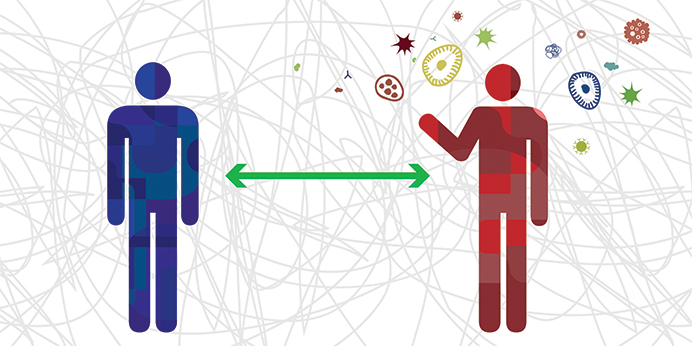The following is the government’s latest guidance on social distancing measures we should all be taking to reduce social interaction between people in order to reduce the transmission of coronavirus (COVID-19).
It is intended for anyone living in their own homes. If you live in a residential care home, guidance is available from the government.
What is social distancing?
Social distancing measures are steps you can take to reduce the social interaction between people. This will help reduce the transmission of coronavirus (COVID-19). The top six things you should do are:
- Avoid contact with someone who is displaying symptoms of coronavirus (COVID-19). These symptoms include high temperature and/or new and continuous cough
- Avoid non-essential use of public transport, varying your travel times to avoid rush hour, when possible
- Work from home, where possible. Your employer should support you to do this. You can refer to the government’s employer guidance for more information
- Avoid large gatherings, and gatherings in smaller public spaces such as pubs, cinemas, restaurants, theatres, bars, clubs
- Avoid gatherings with friends and family. Keep in touch using remote technology such as phone, internet, and social media
- Use telephone or online services to contact your GP or other essential services.
Everyone should be trying to follow these measures as much as is pragmatic.
The government strongly advises you to follow the above measures as much as you can and to significantly limit your face-to-face interaction with friends and family if possible, particularly if you:
• Are over 70
• Have an underlying health condition
• Are pregnant.
This advice is likely to be in place for some weeks.
The government is advising those who are at increased risk of severe illness from coronavirus (COVID-19) to be particularly stringent in following social distancing measures.
This group includes those who are:
• aged 70 or older (regardless of medical conditions)
• under 70 with an underlying health condition listed below (ie anyone instructed to get a flu jab as an adult each year on medical grounds):
o chronic (long-term) respiratory diseases, such as asthma, chronic obstructive pulmonary disease (COPD), emphysema or bronchitis
o chronic heart disease, such as heart failure
o chronic kidney disease
o chronic liver disease, such as hepatitis
o chronic neurological conditions, such as Parkinson’s disease, motor neurone disease, multiple sclerosis (MS), a learning disability or cerebral palsy
o diabetes
o problems with your spleen – for example, sickle cell disease or if you have had your spleen removed
o a weakened immune system as the result of conditions such as HIV and AIDS, or medicines such as steroid tablets or chemotherapy
o being seriously overweight (a body mass index (BMI) of 40 or above)
• those who are pregnant
Note: There are some clinical conditions which put people at even higher risk of severe illness from COVID-19. If you are in this category, the NHS in England will directly contact you with advice the more stringent measures you should take in order to keep yourself and others safe. For now, you should rigorously follow the social distancing advice in full.
People falling into this group are those who may be at particular risk due to complex health problems such as:
• people who have received an organ transplant and remain on ongoing immunosuppression medication
• people with cancer who are undergoing active chemotherapy or radiotherapy
• people with cancers of the blood or bone marrow such as leukaemia who are at any stage of treatment
• people with severe chest conditions such as cystic fibrosis or severe asthma (requiring hospital admissions or courses of steroid tablets)
• people with severe diseases of body systems, such as severe kidney disease (dialysis).
Source: Gov.uk 20 March 2020






